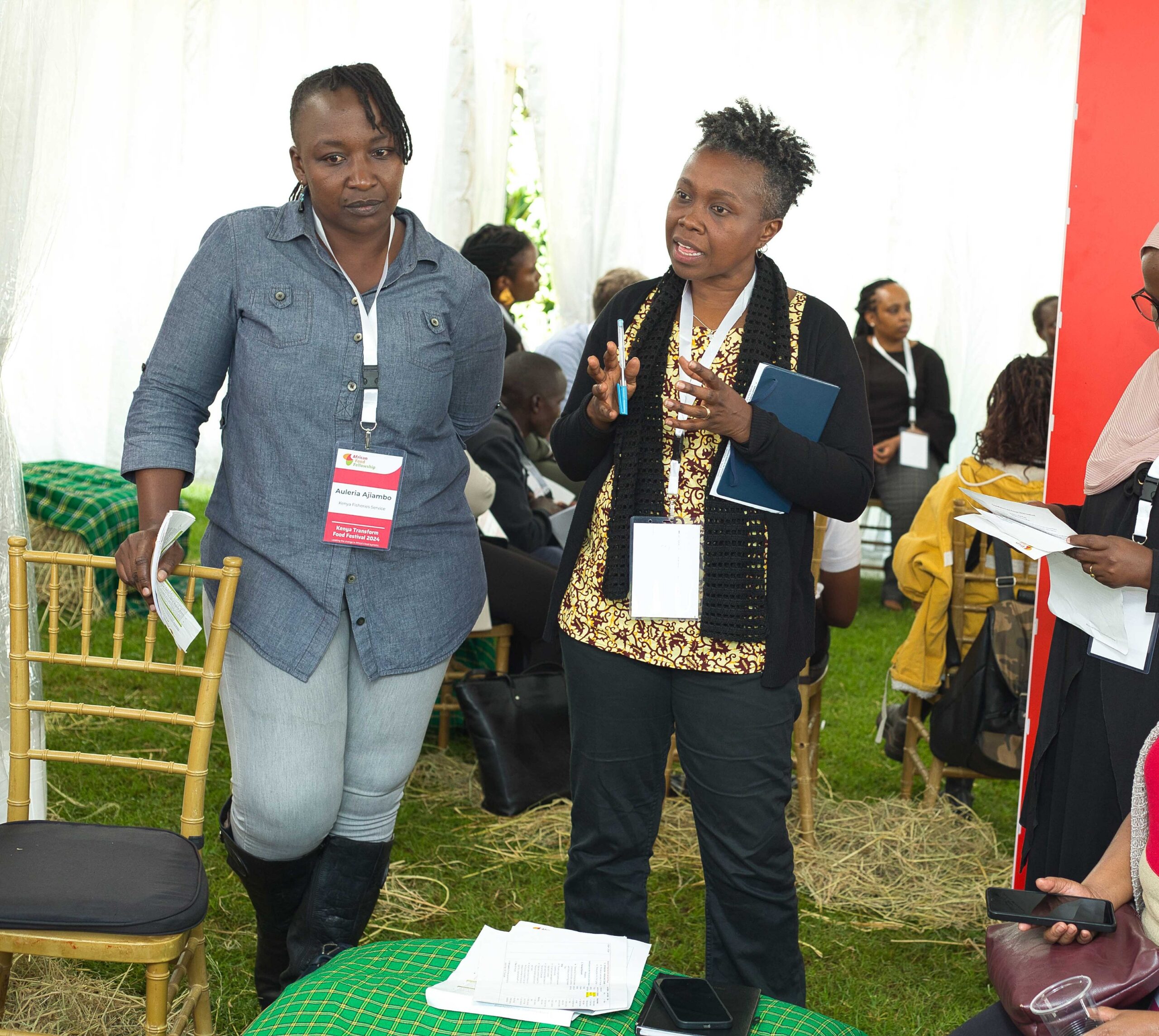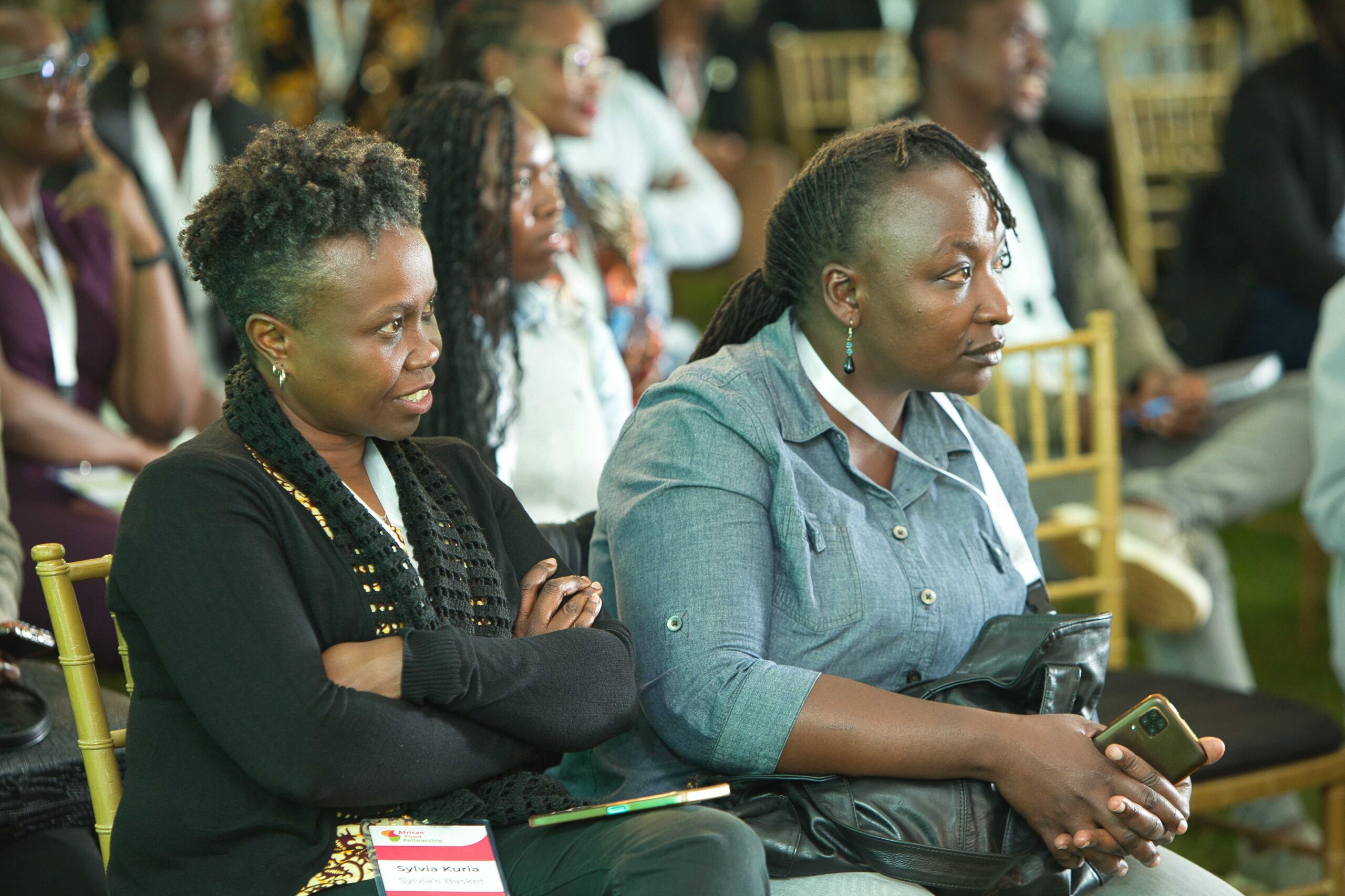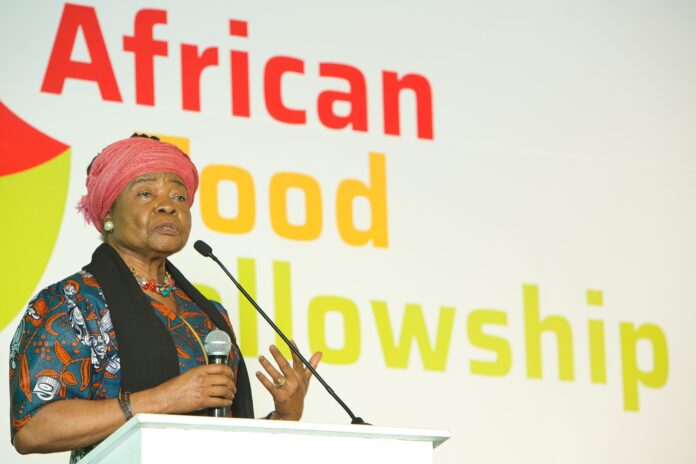By Melisa Mong’ina
Nairobi, Kenya: A groundbreaking initiative is taking root in Vihiga and Kiambu county, transforming school feeding programs by adding a variety of nutritious indigenous foods. This program aims to diversify children’s diets, address nutritional deficiencies, promote healthier growth, and support local agriculture. As this idea comes to light, it holds promise to become a blueprint for a healthier and more self-reliant future in Kenya’s schools.
In an interview with Talk Africa during the 3rd Annual Kenya Transform Food Festival, Sylvia Kuria, an organic farmer and an African Food Fellow, emphasized promoting local indigenous foods in school feeding programs. The initiative aims to take place in Vihiga and Kiambu county, focusing on crops like sorghum, millet, cassava, indigenous leafy greens, and omena, which are high in protein and Omega-3.
“We are piloting our initiative in Vihiga and Kiambu county. Our focus will be on local Indigenous foods like sorghum, millet, cassava, the indigenous leafy greens, as well as omena, because it has high protein, Omega three, and also meets the nutritional deficiencies that we normally see in our children,” shared Sylvia.
She stated that the initiative will not replace maize but rather add diverse and nutritious indigenous foods to the school feeding system. Sylvia explained the motivation behind their initiative, highlighting the broken and fragmented nature of current food systems and the need for expertise in agriculture, research, and policy-making.
“We don’t want to kick out maize. Our initiative is very specific, that we are adding other crops and vegetables that were not primarily within the school feeding programs. We are emphasizing on inclusion of diverse and nutritious indigenous foods in school feeding programs. For us, we just thought it through, and since the food systems available are quite broken and a bit fragmented, we decided to use our expertise together,” she shared.

She outlined the team composition, including herself, Auleria Ajiambo (a researcher from the aquaculture impact area), and Catherine Karanja (who specializes in policy-making and partnerships). Each team member brings unique expertise to the initiative. She noted that the team is still in the ideation stage, gathering information and data, and welcomes any suggestions and inputs from relevant stakeholders to put their ideas to work.
“In this initiative, we are working with three key fellows,” she noted. “Auleria, a researcher with expertise in the aquaculture impact area, is gathering essential data to inform our work. Catherine Karanja, who has extensive experience in policy-making and partnerships, is engaging stakeholders to elevate our food systems action to the next stage. As a farmer and producer, I focus on aggregating and training farmers to grow the food needed for this program. Currently, we are at the ideation stage, gathering information and data and we welcome any suggestions and inputs from relevant stakeholders.”
Auleria Ajiambo, an African Food Fellow specializing in research and food safety analysis at Kenya Fisheries Service, discussed the importance of collaboration with other food fellows, particularly Sharon, who is working on popularizing omena and creating recipes to reduce its strong smell. Their plan involves integrating these recipes into school feeding programs to make omena more acceptable to children.
“We talked about collaboration with other food fellows. We have one of our cohort members, known as Sharon, who works for lattice, and she is trying to work on popularising Omena and creating recipes that avoid that strong smell. With time, we will integrate the recipes into the institution’s meals by teaching consumers about its benefits and eventually, they will adapt,” said Ajiambo.
Ajiambo emphasized the need for research and collaboration with aquaculture experts to develop ways in which omena will be introduced into school feeding programs.
“We are going to work with our fellows who are dealing with the value chain addition in the aquaculture space, then we’ll come up with a way for it to be introduced into the school feeding program,” shared Ajiambo.
She summarized their research findings from two papers that support the inclusion of indigenous foods in school feeding programs, highlighting their potential to reduce malnutrition and provide essential micronutrients. The research will also focus on identifying the needs of various stakeholders, including schools, the Ministry of Education, the Ministry of Health, and local communities.

“We’ve read at least two papers so far and both papers support the idea of including indigenous food in the school feeding programs. They have supported that the initiative will reduce malnutrition by including micronutrients in the diet. We are bound to do more research on the needs of the community, the schools, the Ministry of Education, the Ministry of Health, and the community,” noted Ajiambo.
Their goal is to ensure a reliable supply of indigenous foods and influence policy to compel institutions to buy local indigenous foods. She stressed the importance of understanding local food production capabilities and working with communities to scale up production for school feeding programs.
“We are going to ensure there is a reliable supply of these indigenous foods,” stated Ajiambo. “We also have to be in the policy space to make sure that the institutions are compelled to buy the indigenous food, and to find out what the local communities are consuming, what they can locally produce, and how can we scale up for the local farmers so that they can be able to supply to the institutions.”
Prof Ruth Oniang’o, a Nutrition Expert and Food Systems Leader emphasized the importance of food safety and quality at both individual and corporate levels. She discussed the challenges women face in public space and the need for men to support them. She also encouraged young people to get involved in food-related activities and businesses.
“We need to look at food safety, the quality of the food we eat, and what we add to it, not only at the individual level but also at the corporate level. Men should also support us because it is so hard to be a woman, especially when working in public spaces. For the young people, you can be a pilot and still do farming. You can be an engineer, or a lawyer and still deal with food-related activities,” said Prof. Oniang’o.
She further discussed the importance of leadership and policy in promoting healthy food practices, stressing the importance of governance in the food sector. She called for more policymakers and emphasized the need for healthy diets and food safety in the country.
“Governance, Policy, and Leadership are so critical. I wish we had more policymakers here and I’m hoping that next time, more policymakers will be available. Moving forward, think of healthy diets. Don’t just eat everything you find,” stated Prof. Oniang’o.
According to Brenda Mareri, Dean and Implementation Lead of the African Food Fellowship Kenya, the fellowship teaches systemic leadership and supports fellows in doing their projects or initiatives. They also recruit different individuals who work across the food system space and are between the ages of 18 to 45 from junior to senior management.
“The Fellowship believes that systemic leadership can be taught. We back people working on systemic change and give them the support they need, to do good work. Generally, we often recruit individuals who work across the food system space, and within the fellowship, we believe that leadership is not about governance or hierarchy, so we have to work together as leaders. We often target individuals between the ages of 18 to 45 from junior to senior management,” said Brenda.














